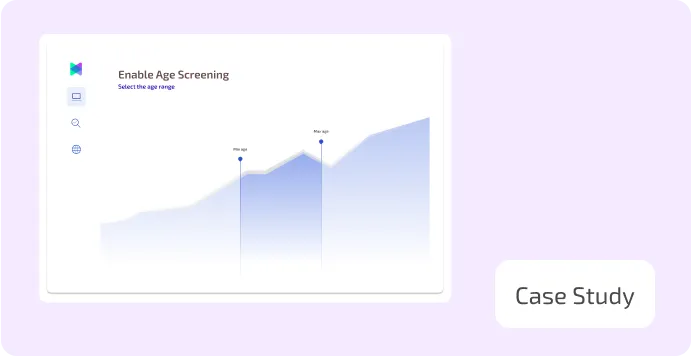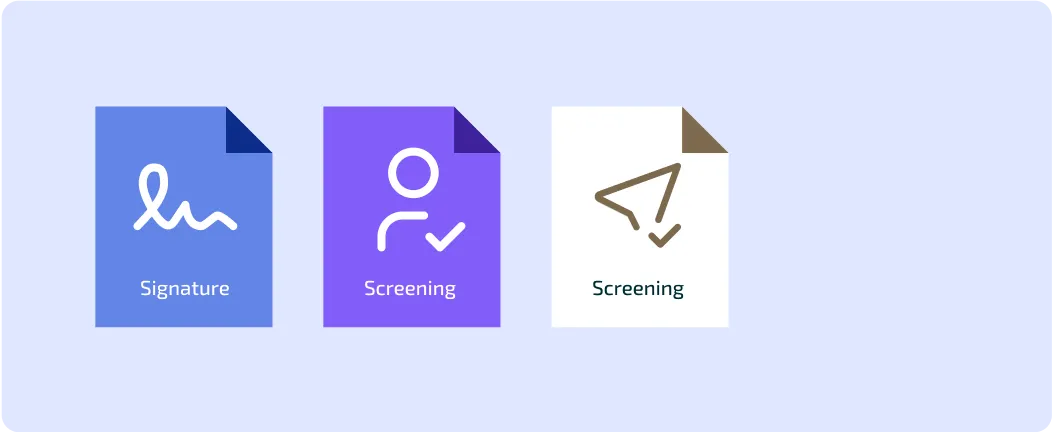.webp)
Published on
June 24, 2025
Enhanced Due Diligence (EDD)
.png)
Accelerate AML Compliance: Meet Regulatory Demands with 80% Less Setup Time
.svg)
.svg)
Enhanced Due Diligence (EDD) is a deeper, more detailed process used by financial institutions to assess customers who present a higher risk for money laundering or financial crimes. While Basic Due Diligence (CDD) focuses on verifying a customer’s basic information, EDD digs much deeper, especially when dealing with clients from high-risk areas or those who might be politically exposed persons (PEPs).
EDD involves gathering more specific details, like where the client’s wealth comes from, what kind of business they are in, and why they’re engaging in certain financial transactions. The aim is to ensure that the financial institution fully understands the customer's financial behavior and can identify any potential criminal activity early on.
In practice, financial institutions that apply EDD will monitor high-risk clients more closely. For example, they might require proof of the origin of funds and other financial documents that go beyond the basics. If something unusual is spotted, the account is flagged, and the institution may report the activity through a Suspicious Activity Report (SAR).
EDD is mandatory under global AML regulations, including guidelines from the Financial Action Task Force (FATF). This means that institutions must use this level of due diligence when dealing with clients or transactions that pose a higher risk of criminal involvement.
Example:
Consider the hypothetical case of Prestige Bank, a large global bank. In 2022, a wealthy individual, Mr. Viktor, opened a series of accounts with the bank, claiming to run a legitimate tech company in Eastern Europe. At first glance, the documents Mr. Viktor provided seemed in order, but the bank’s automated systems flagged him as a high-risk client due to his connections to a region with a history of financial instability and corruption.
Given this high-risk profile, the bank immediately initiated Enhanced Due Diligence (EDD). The compliance team requested further details, such as documentation showing how Mr. Viktor had accumulated his wealth, a breakdown of his business dealings, and clarification about his political connections.
Upon review, the bank discovered that Mr. Viktor had ties to several companies with unclear ownership structures and that some of his funds came from countries known for money laundering risks. Further investigation revealed links to a shell company, which raised red flags about potential money laundering activities.
The bank decided to freeze the accounts and report the findings to relevant authorities through a Suspicious Activity Report (SAR). This allowed authorities to look further into Mr. Viktor’s activities. Without the application of EDD, the bank could have unknowingly processed illicit transactions, putting it at risk of legal action.
Streamline Compliance: Achieve 80% Faster Setup for Fraud Prevention
.svg)
.svg)

How Aseel reduced onboarding time by more than 87% using FOCAL
Learn how FOCAL empowered Aseel to achieve new milestones.


Mastering Fraud Prevention: A Comprehensive Guide for KSA and MENA Businesses
51% of organizations fell victim to fraud in the last two years, don't be caught off guard, act proactively.


Featured blog posts

.png)
Enhanced Due Diligence (EDD)
Learn how Enhanced Due Diligence (EDD) helps financial institutions identify high-risk clients, comply with AML rules, and prevent money laundering threats.
.webp)
.png)
Enhanced Due Diligence (EDD)
Learn how Enhanced Due Diligence (EDD) helps financial institutions identify high-risk clients, comply with AML rules, and prevent money laundering threats.
.webp)
.png)
Enhanced Due Diligence (EDD)
Learn how Enhanced Due Diligence (EDD) helps financial institutions identify high-risk clients, comply with AML rules, and prevent money laundering threats.
.webp)





AI-Driven Precision in Fraud Risk and AML Compliance



.svg)
.png)





.svg)

_FastestImplementation_Small-Business_GoLiveTime.png)

_HighPerformer_Small-Business_HighPerformer.png)
_Leader_Leader.png)



%20(1).webp)